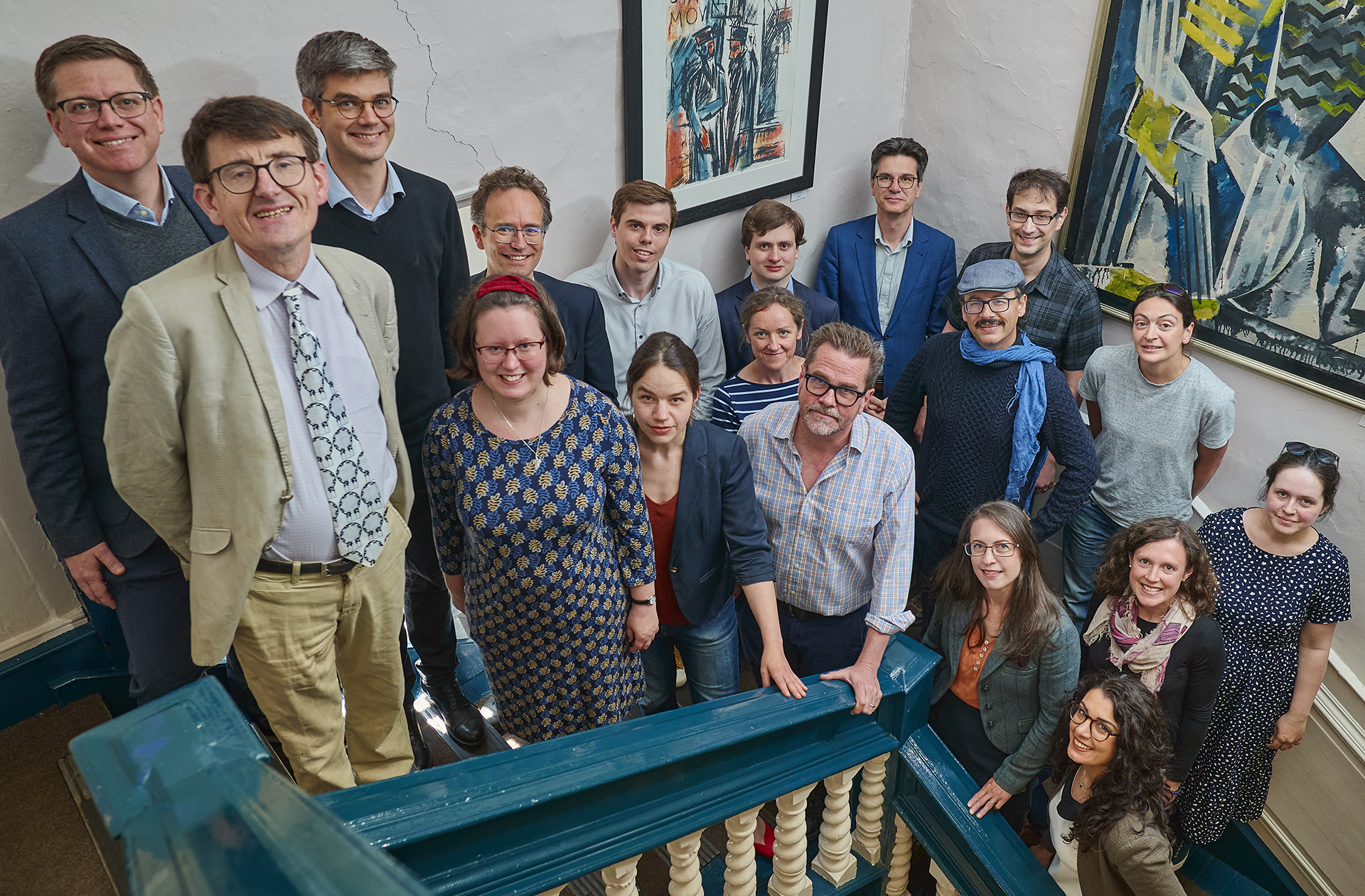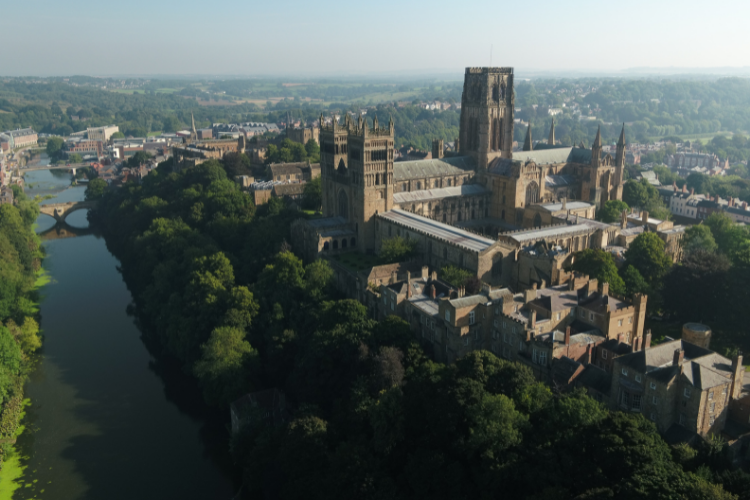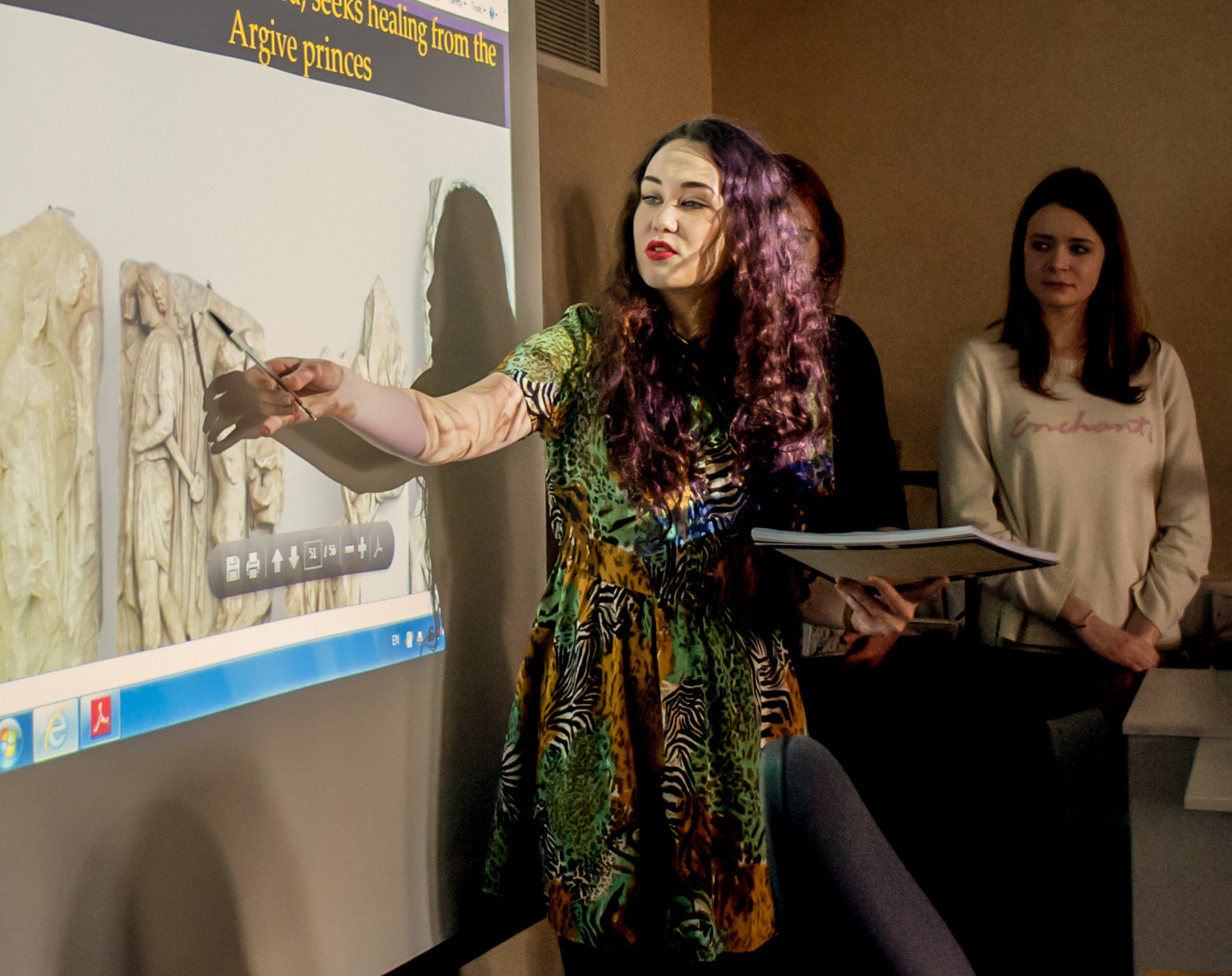At our Department, world-leading experts and future world-leading experts continually learn from one another to develop their ideas and shape the future of their fields.
Research and Impact
At Durham, we are committed to the study of Graeco-Roman antiquity as a subject with global relevance and the inherent potential for social and pedagogical benefit.
Our approach to research involves rigour in methodology (including a strong emphasis on the study of Greek and Latin), underpinning innovative explorations of new frontiers in the discipline, which aim to challenge entrenched and parochial views of the subject. We aim, in short, to produce credible and innovative research which has far-reaching effects on the subject and society as a whole.
Research areas
Impact
Our research centres
There are five research centres based in Classics and Ancient History (but with interdisciplinary connections across the University).
- The Centre for the Study of the Ancient Mediterranean and the Near East (CAMNE) places ancient Greece and Rome within the study of the wider synchronic and diachronic cross-cultural contexts in which they flourished, and addresses the issue of cross-cultural encounters;
- The Durham Centre for Classical Reception (DCCR) fosters the study of the reception of classical culture within and beyond antiquity;
- The Durham Centre for Ancient and Medieval Philosophy (DCAMP) aims to use existing, wide-ranging interests in the study of ancient philosophy at Durham as the basis for growing institutional strength in medieval thought;
- The Centre for Language and Writing Systems (CLAWS) is an interdisciplinary centre that fosters research on Indo-European linguistics, languages and culture, alongside prehistoric and historical non-alphabetic scripts ranging from the Indian peninsula to the Near East as well as Western Europe;
- Durham Centre for Classics Education Research and EngagementS (CERES) is an interdisciplinary centre which fosters research on the learning and teaching of classical languages and ancient civilisations in primary, secondary, further, higher and adult/community education.
Transformative Humanities
Discover the Faculty of Arts and Humanities' new Transformative Humanities framework which brings together distinctive approaches to humanities research and education within the academy and across a wide range of partners and communities.
Research videos
Man of Empire: the Life of Pliny the Younger (Prof. Roy Gibson)
Find out more
Publications
Read the latest books written and edited by colleagues in our department.
Meet our staff
Learn more about the work and research specialisms of our colleagues.
Postdoctoral research funding
Find out about fellowship and scholarship opportunities to undertake research at Durham.
Events and seminars
View our events calendar for the latest research seminars and workshops.


/prod01/prodbucket01/media/durham-university/departments-/classics-and-ancient-history/47302-3941X1553.jpg)

/prod01/prodbucket01/media/durham-university/departments-/classics-and-ancient-history/research/IMG_2477.jpg)
/prod01/prodbucket01/media/durham-university/departments-/classics-and-ancient-history/unnamed-17.jpg)
.jpg)







/prod01/prodbucket01/media/durham-university/research-/research-institutes/institute-for-medical-humanities/books-2241631_1280.jpg)
/prod01/prodbucket01/media/durham-university/departments-/classics-and-ancient-history/Classics1611Jun-05-2023.jpg)


/prod01/prodbucket01/media/durham-university-business-school/Durham-Cathedral-drone-shot-.png)
/prod01/prodbucket01/media/durham-university/departments-/classics-and-ancient-history/59377.jpg)

